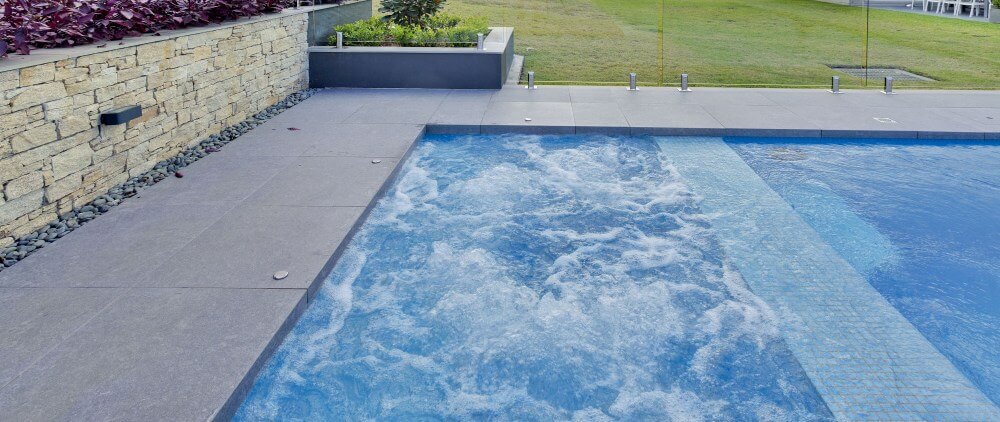When you are planning your backyard swimming pool, it is important to consider which type of pool heating system to choose. There are a number of different options available, and each has its own advantages and disadvantages.
Here’s what you need to know about the different types of pool heating to help you choose the best one for your needs.
Why You need a Pool Heating System
All outdoor pools in Australia need a helping hand when it comes to heating the water. This is because pool water is not as warm as you might think. For example, a swimming pool in Melbourne is only likely to reach 16 or 22°C in the middle of summer.
Even if you live in one of the warmer regions of Australia, you will still need a pool heating system. The water might reach a temperature of almost 30°C at the height of summer, but during the winter months it could easily be 10 degrees cooler than this. You want to be able to enjoy your pool for most of the year, not just for the three or four months when the weather is at its hottest and you need to jump in the pool to cool off!
You also need to bear in mind that the sun’s rays hit the surface of the water, so this is always the warmest part of the pool. Even if it feels warm enough when you dip your toe into the water, the temperature beneath the surface is likely to be around three degrees cooler.
Remember, one of the main functions of having your own swimming pool in the backyard is to provide you with a place to relax. Cooler water might be bearable if you are constantly swimming laps, but if you want to take things a little easier sometimes, you need the water temperature to be comfortable. As a guide, public spas are heated to a temperature of 36°C. This is a water temperature in which most people can comfortably relax.
So, no matter where in Australia you are based, you need to choose a water heating system for your pool. But which is the right type of heater to choose?
What Are the Different Methods of Heating a Swimming Pool?
There are three main types of pool heating available for backyard swimming pools in Australia:
1. Solar Heating
Solar heating is the most popular method of pool heating, as well as the most cost-effective. It harnesses the natural energy from the sun to heat your pool, so it is safe and healthy for the environment, and saves you a lot of money on your household bills in comparison to the other available methods of heating your swimming pool.
Solar pool heating works via a solar pump, which is run using a very small amount of electricity — usually under 1 kW per hour. The solar pump pushes the water through a network of capillary tubes, ensuring the water stays heated to a constant temperature throughout the pool.
Solar heating systems work best in regions that get a lot of sunshine, as the solar power will be more reliable for more months of the year. On a warm, sunny day, a solar heating system can increase the temperature of your entire pool by two degrees, which makes a great amount of difference to the level of comfort you will experience in the water.
2. Electric Heating
Heat pumps are popular with Australian pool owners. By reusing the energy from the air, heat pumps can heat your pool without breaking the bank. Electric heat pumps are a relatively cost-effective means of heating your swimming pool. They work by collecting heat from the air and transferring it into your pool water via a heat exchanger.
Depending on the climate where you live, an electric heating system can sometimes be more effective than solar power, as it can still collect heat from the air during cloudy weather and at night, when the sun obviously is not shining. Electric pumps also tend to heat your pool water more quickly than solar heating systems.
However, electric heat pumps require a significantly greater amount of electricity to run than solar heating. This makes them more expensive and less environmentally friendly. A dedicated power circuit for the new electric heating will be required to accommodate your heat pump.
An electric system is also likely to give you a smaller increase in water temperature, so your pool might not feel so comfortable, even though you may be able to use it for more months of the year.
3. Gas Heating
Gas is the most expensive method of heating your pool, but in some ways it is the most effective, as it does not rely on the sun or the temperature of the air. A gas pool heater can maintain your pool water at practically any temperature you choose, at any time of year.
This is why gas heaters are the most popular means of heating spa water, as spas are used for hydrotherapy treatments to relieve pain and help people recover from muscular injuries. For this reason, spa water has to be maintained at a comfortable and relaxing temperature. If you are planning a spa or a pool and spa combination, gas might be the right choice of heating method for you.
Another advantage of gas heating systems is their ability to heat pool water quickly. A gas system, depending on its size, can heat the water in a spa in just under an hour, so it is ideal for those occasions when you want to use your pool in a hurry but the water is too cold.
Gas has a number of disadvantages as a pool heating system, however. It is not a clean form of energy, so it is harmful to the environment. In addition to this, it is extremely costly to run. This is why gas heaters are often only used as secondary systems to heat the water at times when the sun is not providing enough solar power.
Which Type of Pool Heating System Should You Choose?
The best type of heating for your swimming pool will depend on your individual circumstances. You will need to consider a number of factors, including:
- The average temperatures where you live
- The amount of sunshine your area gets
- How often you want to use your pool
- Whether you want to swim all year round
- What your pool will be used for (swimming, relaxation, hydrotherapy)

You should also consider the needs of the other people who will be using your pool. For example, if you have young children or elderly relatives, they may need a warmer water temperature to feel comfortable, as they are unlikely to be swimming as intensively as you. If anyone using the pool has an injury or a condition that causes pain, they will also benefit from the pool water being a higher temperature.
Another important factor to think about is the size of your pool. A larger pool will need a more efficient heating system to ensure that the entire pool can be heated to a constant temperature.
Because there are so many different factors to consider when choosing a heating system for your pool, it is extremely important to consult with a plumber when you are planning your pool design and installation. They will be able to give a professional opinion on the best type of heater for the area you live in, as well as taking all your other needs into account.
It is essential that you consult with the plumber before your pool is installed, as most heating systems need to be installed at the same time as the pool. They usually have separate lines and pumps, so the plumbing firm will need to access everything they need in advance, ready to install the heating system as the pool is being built.
More Information About Pool Heating Systems
There are many things to think about when choosing your pool heating system. Perhaps one type of pool heater stands out as the obvious choice. Maybe you will need a combination of two different systems to suit all your lifestyle needs.
If you need any more information about pool heating systems or help choosing the right system for you, please contact your authorised Compass Pools dealer. Their pool builders have extensive experience in installing pools in a wide variety of different locations and climates, so they will be happy to answer all your questions and help you make an informed choice about the most appropriate heating system for your pool.
























